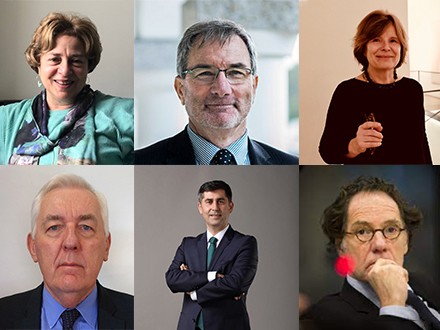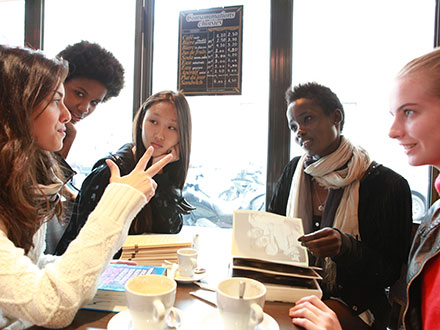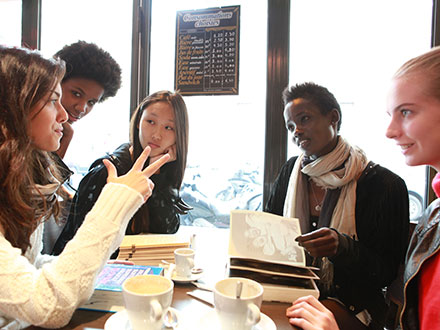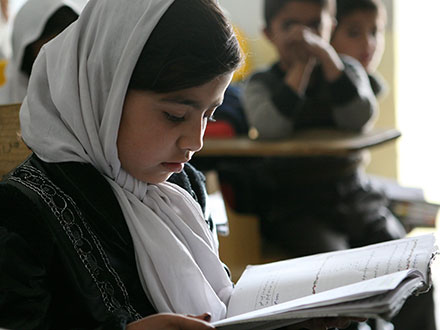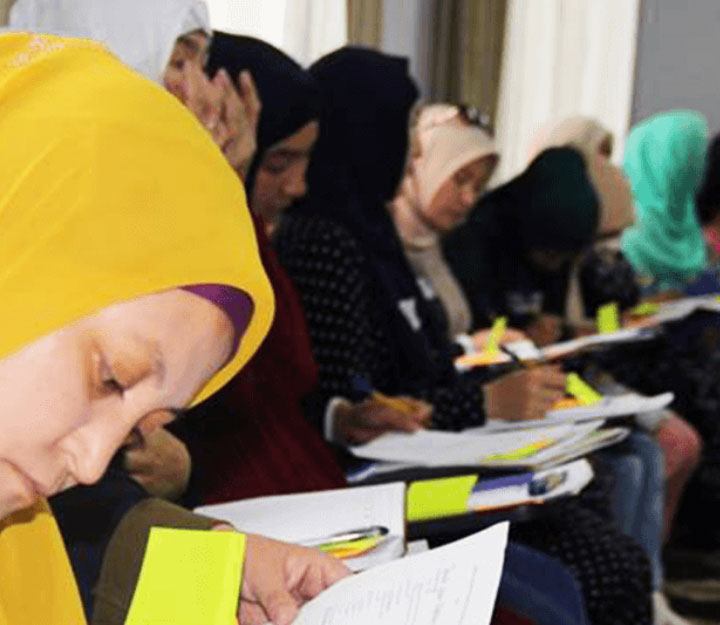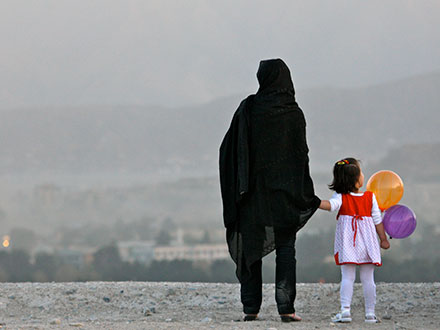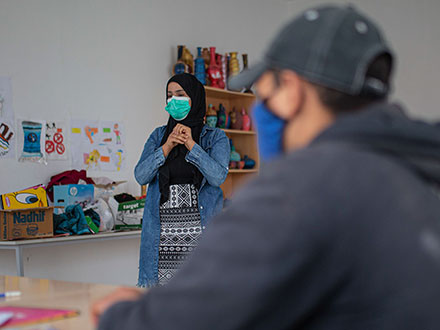Deconstructing fake news and raising media literacy in Serbia
by David Ludescher
Our second article on the different projects of the STRIVE Global program will portray another civil society organization from Serbia, but this time from the journalism strand.
In this post, we will present the Novi Sad School of Journalism (NSSJ) and its project “Enhancement of media reporting on violent extremism and terrorism”, which started its implementation in October 2019 and came to an end in November 2020.
Background
Fake news and manipulative reporting have gained raising attention in the last years and are often labeled as one of the most direct threats towards democracy today. The phenomenon has increasingly become internationalized, as shown in the example of the US presidential elections 2016, where Russian troll factories played an important role in the election of Donald Trump. In line with these developments, the European Commission adopted an Action Plan against Disinformation in 2018. [1] The free flow of information is especially important in countries with a strong government where independent reporting is often perceived as one of the crucial pillars of democracy. When it comes to the situation in Serbia, the European Commission states that the country broadcasts elements of a captured state. Serbia is the third country in Europe most influenced by fake news, with almost every Serbian media outlet spreading fake news. [2] At the same time, its citizens rank at one of the last spots when it comes to media literacy. [3] It is thus important to react in a way that will both improve professional media reporting and the level of media literacy in the citizens.
One of the biggest challenges for Serbia in the last decades has been resolving the Kosovo dispute, which not only involves resolving the territorial conflict, but also reducing inter-ethnic and inter-religious tensions between Serbs and Albanians. The media has played an important role in keeping the tensions up by conducting campaigns filled with fake news, manipulative information, and hate speech, and often almost resembling calls to war. Large Serbian media outlets have published articles explaining how Albanians were preparing bombing attacks on Serbs. Further, media outlets in Serbia are prone to intolerant and nationalist discourse, and the use of hate speech in online media as well as social networks is widely spread in the country, often targeting Albanians, Croats, Bosniaks, Muslims, Roma, or other vulnerable groups such as refugees, the LGBT community, and certain groups of women. The refugee crisis in Europe has in cases been referred to as a planned invasion of Europe in Serbian media and the rise of extremism in the country has often been attributed to Islamic extremism by the media. This has been used as an excuse for the strengthening of right-wing nationalist movements in the country.
Decade-long media reforms have failed to create conditions for the development of media as an institution of democracy, with state ownership of media and some political and economic magnates controlling all big media outlets and pursuing their own interests. While the practice of fake and manipulative reporting is in theory prohibited under the Serbian Law on Public Information and Media, the violations remain unpunished. As a result of that, there is poor cooperation between the government and professional media. Public officials may mistrust journalists and often refuse to answer their questions. Journalists often receive threats and are in some cases even physically attacked, but only a small number of those cases are actually persecuted by the Serbian authorities.
Enhancement of media reporting on violent extremism and terrorism

To combat these issues, the Ministry of Culture and Information is responsible for implementing part of the National Strategy for Prevention and Combating Terrorism of the country, namely the improvement of the overall public awareness of terrorism through media campaigns and cooperation with civil society. As a result of this, NSSJ partnered up with the Ministry of Culture and Information to implement its project “Enhancing of media reporting on violent extremism and terrorism”. As a first step, the project aimed at improving the capacity of journalists to report on the issues of violent extremism and terrorism. Reporting on these issues is a highly complicated matter and requires complex knowledge and expertise, in order to adequately create reports that don’t stigmatize a certain group of people and follow ethical considerations. The University of Novi Sad is the only university in the country that teaches students how to report in crisis situations, which leads to most students in the country not being adequately prepared to report on these topics when they start their careers.
Furthermore, the project worked on building the capacity of journalists and students of journalism to deconstruct specifically designed false information. In 2017, NSSJ launched a new platform called FakeNews Tragač (Fake News Tracer). This platform is dedicated to monitoring fake news, analyzing media outputs, and deconstructing manipulative information. The platform also includes an online course aimed at the general public that teaches the basic tools needed to deconstruct fake news. Further informal courses on fact-checking and deconstructing fake news provided by the NSSJ in the past proved to attract great interest by journalists and showed the need for them to be included in the formal education processes. NSSJ tailored the project to students of journalism from three universities in the country, namely from Novi Sad, Belgrade, and Niš. Moreover, professional journalists received direct training on reporting on topics related to violent extremism and terrorism. The broader public of Serbia profited from this project by raising their awareness of fake news and providing examples of misleading or manipulating articles and thus improving their overall media literacy and critical thinking. The long-term effects will hopefully benefit all of society by decreasing the spread of hate speech and fake news in the country and halt the division of the Serbian civil society based on prejudices and stereotypes.
Improving cooperation between government, journalists, and civil society
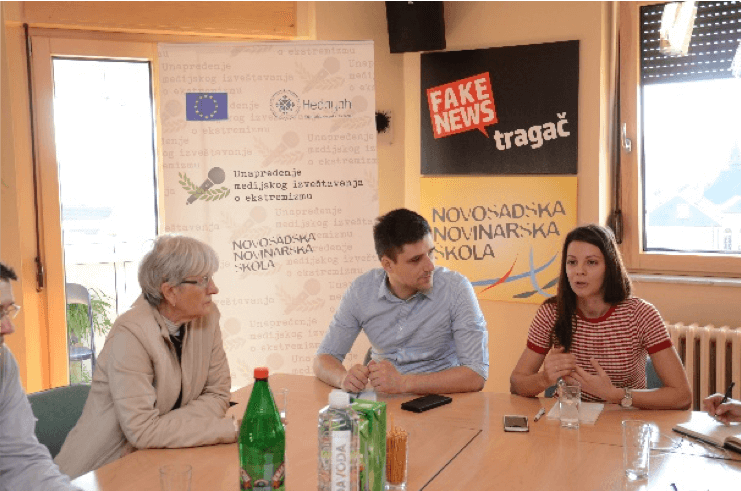
As a first pillar of the project, cooperation with government representatives, journalists, representatives of CSOs active in the media sector, and university professors was established. Upon defining the main problems and producing guidelines for the project, research on the topic of reporting on violent extremism began. Each actor was able to provide his experience and expertise in order to explore all fields that should be analyzed during the research. The research consisted mainly of media-monitoring in the country, where several newspapers, online portals, and TV stations were monitored for one month. One of the media monitored by NSSJ was the Serbian Public Service, as it is financed through the public budget, and the other monitored media were chosen based on their previous unprofessional reporting and spread of fake news and hate speech, as analyzed previously by NSSJ. Furthermore, interviews with media editors that report on topics related to violent extremism were held. As a result, NSSJ published a report [4] on the research findings, reflecting a broad collection of data which included: the number of fake news published, over the manipulative strategies used, to the different forms of hate speech. With these findings, a group of representatives used their combined expertise to develop an E-guide for professional reporting on violent extremism, which illustrates several real-life examples found during the research. The E-guide also contains guidelines and recommendations for practitioners for creating quality reports on violent extremism and related topics and was used as a primary source for the elaboration of the training courses in the further implementation of the project. The E-guide [5] is available online so that every Serbian citizen who wants to learn about the topic can access it, and thus raise the citizen’s media literacy. Following the publication of the E-guide, NSSJ has become known for its expertise in this topic in Serbia and received several invitations to give lectures on that topic.
Improving capacities of journalists for reporting on violent extremism and terrorism and strengthening civil society media literacy
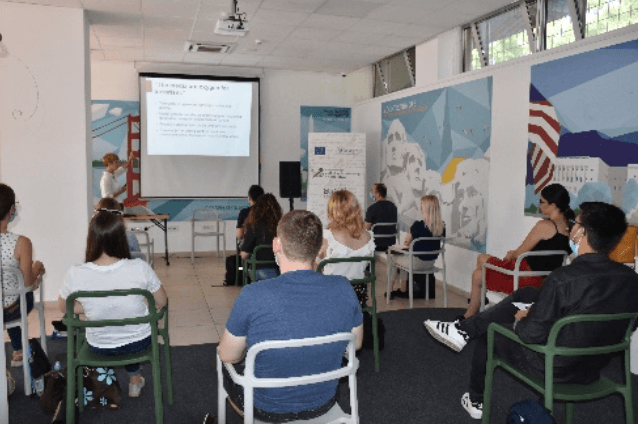
The pillar stone of the project then worked on building the capacities of media professionals and students of journalism for reporting on violent extremism and terrorism. Through four workshops and two training courses, over one hundred journalists and journalism students received training in several different topics, including: the importance of a professional and unbiased approach to the topic, the useful tools to deconstruct fake or manipulative media content on the topic, the best ways to critically approach the topic, and photo and video validation tools. Media experts who consisted of experienced journalists and editors with proven experience and adherence to ethical, truthful, and impartial reporting led the training. An emphasis was also put on how different metaphors, characterizations, or stereotypes can affect and form public opinion and thus on why objective reporting is so important. Three of the students who participated in the trainings went on to become members of the Fake News Tracer redaction and helped in the deconstruction of fake and manipulative information on violent extremism.
Overall, throughout the project and with help of the students, 28 articles deconstructing fake news were published by the Fake News Tracer. Messages promoting quality journalism and examples of good and bad practices and the consequences of inadequate reporting were presented, based on real-life examples from different media in the country as defined by the Fake News Tracer. Topics ranged from made-up articles on migrants attacking Serbian women and staff at the reception centers, Albania wanting to invade Serbia, Kosovo being a terrorist state, World War 3 breaking out soon, Albanians in the country trying to poison Serbians, or discrediting peaceful protesters as being violent Vojvodina separatists and attacking Serbians. Articles going into further detail can be found on NSSJ’s social media channels or on the Fake News Tracer website. [6]
This public deconstruction of fake news led to high engagement on social media, with people pointing out the Tracer’s redaction of other fake articles, widely sharing the content, and thanking the redaction for their work. The series of social media posts reached over 400,000 people in the country throughout the campaign. Influential Facebook pages such as “Anonymous Serbia” consequently apologized for sharing some of these articles and promised to check information more thoroughly in the future. The editor of FakeNews Tragač made several public appearances during the project implementation and talked about unprofessional and potentially harmful media practices when spreading fake information, hate speech, and false announcements of war. The project also gained high visibility through a personal initiative by the editor of the Fake News Tracer who granted the “Pinocchio” award to the media outlet spreading fake news the most. The fake news articles that were deconstructed throughout this project helped to determine to which outlet it should be granted.
A further great indirect contribution of this project to the professionalization of media in Serbia was seen at the end of the project. The media outlet “Kurir”, which was intensively spreading fake information and hate speech, and whose articles were deconstructed on several occasions, as a reaction employed an advisor for ethical questions and has since significantly reduced the publishing of fake information and hate speech. As a final written output, based on the findings in the research report, NSSJ produced a publication on “Hate Speech and Stereotyping in Traditional and New Media”. [7] The report gives a brief overview on non-professional media practices that violate the basic human rights of various social groups through hate speech, stereotyping, and prejudice. Due to the fact that no live events could be organized, NSSJ produced several advocacy videos that were shared on social media. They treat topics like the causes of fake news [8], how they are deconstructed [9], and the consequences of extremist narratives on domestic media. [10]
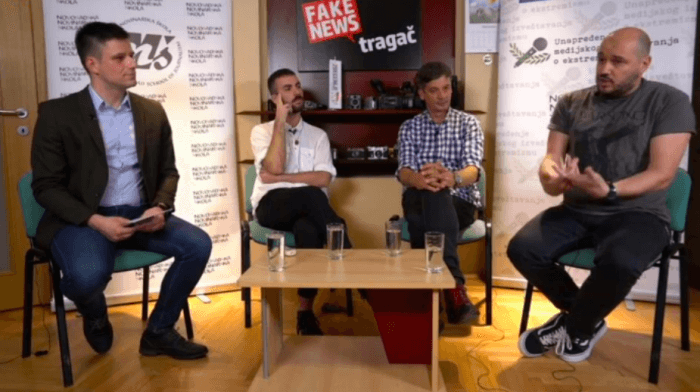
Finally, NSSJ launched a national competition for the best news story about violent extremism in order to promote quality journalism. Journalists were invited to submit one of their recent news stories on the topic. The results were presented at a final public conference organized by NSSJ, where the jury, after thorough consideration, granted the award to the news story “Days of Serbian Nationalist Marmots”. [11] The article explains how the fear of migrants is exploited to spread hate, and by which actors this is done. The winner, a recent university graduate who had participated in a student workshop, was interviewed and received a laptop. Furthermore, during the conference, the research results and the E-guide were presented. Several experts talked about how media in Serbia report on extremism and radicalization, how the audience is manipulated to believe extreme narratives, in what way people in politics with racist and homophobic attitudes affect people, and how important an adequate education is for reporting on crisis situations. The final conference[12] attracted great public interest and was followed by several thousand people.
Conclusion
To conclude, the project has had several positive outcomes. On one side, many professional journalists were reached and their awareness was raised on the negative consequences of inadequate reporting on violent extremism and terrorism. Three students who participated in the deconstruction of fake news further became members of the permanent NSSJ staff. Cooperation between government representatives and journalists was also improved through several meetings between the different parties. On the other side, Serbian civil society was reached through the deconstruction of fake articles and the social media campaign, which strengthened their media literacy and has already led to more citizens reporting harmful media content, fake news, and hate speech to the Tracer’s redaction. In the future, the E-guide could serve as a useful resource for the process of policymaking by government representatives. Furthermore, universities could benefit from this project and add the workshop materials to their teaching curriculum, as the University of Novi Sad has already done.
Thank you very much for tuning in and we look forward to presenting you with another of our projects next month.
References
[1] action_plan_against_disinformation.pdf (europa.eu)
[2] http://www.communicationmonitor.eu/2018/06/13/ecm-european-communication-monitor-2018/
[3] http://osi.bg/downloads/File/2018/MediaLiteracyIndex2018_publishENG.pdf
[4] https://novinarska-skola.org.rs/sr/en/publication/serbian-media-on-terrorism-and-violent-extremism/
[5] https://novinarska-skola.org.rs/sr/en/publication/media-coverage-of-violent-extremism-and-terrorism/
[11] http://voice.org.rs/digitalni-sovinizam-na-fejsbuku-dani-srpskih-nacionalistickih-mrmota/
[12] Novosadska novinarska škola – KONFERENCIJA: Izveštavanje o ekstremizmu i radikalizaciji | Facebook
About Novi Sad School of Journalism
The NSSJ was founded in 1996 and is dedicated to the development and professionalization of the media scene in Serbia. Its core values are the respect of truth, knowledge, and critical approaches, the fostering of a moderate and tolerant dialogue, and the respect of the country’s multinational, multicultural, and multilingual environment. It is guided by the principles of European integration, social action, and democratization. It aims at strengthening civic activism and preparing young people to participate in decision-making processes. Its activities are focused on increasing the professional capacities of the Serbian media sector, monitoring, and analyzing media content, educating different target groups about media literacy and advocacy, and by these measures contributing to the democratization and development of civil society and the promotion of European values in the country. In order to achieve these goals, NSSJ offers knowledge and skills trainings that promote objective communication excluding ethnic, religious, racial, or sexual discrimination. The NSSJ has further established cooperation networks with local, national, and international media and educational institutions, as well as governmental and non-governmental organizations.
About STRIVE Global In Focus
The STRIVE Global: In Focus series will present a series of articles presenting the overarching STRIVE Global program, as well as insights and outcomes from its projects. The STRIVE Global program aims at building the capacity of state and non-state actors to effectively challenge radicalization and recruitment to terrorism while continuing to respect human rights and international law. Throughout its implementation, the program has supported 36 different civil society organizations in the Western Balkans, Central Asia, the South Caucasus, the MENA region, and Turkey.
In this series, we will present one of these organizations and its respective project each month. The series serves as a contribution to the conversation around diverse CVE solutions and pushes forward the quest for more research and innovation in the field. The authors of the articles are the STRIVE Global team and the opinions expressed in these articles are their own and not representative of Hedayah.



